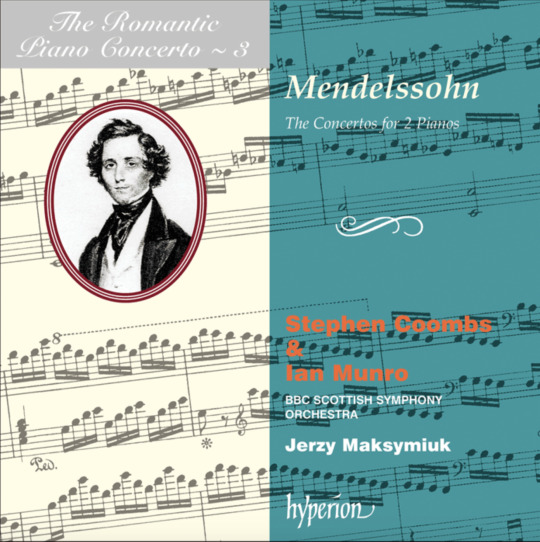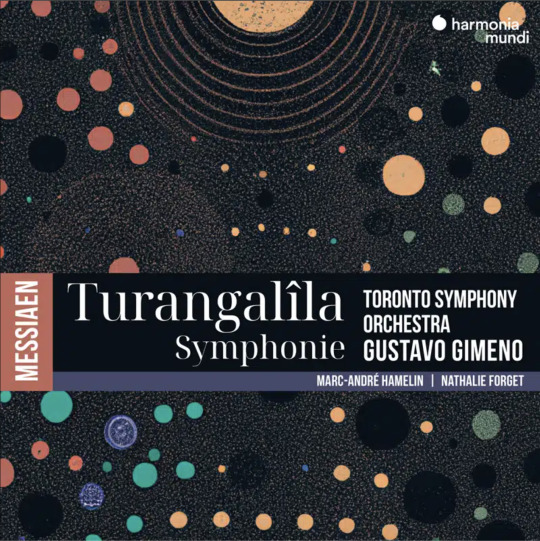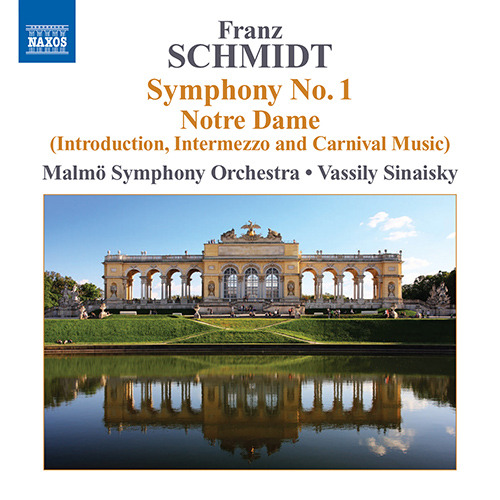#sakari oramo
Explore tagged Tumblr posts
Text





This Week's Listening & Muses - April 1-7
Schmitt - Suites from Antoine et Cléopâtre. For r/classicalmusic 's piece of the week. I haven't listened to much by Florent Schmitt, I know his symphonie concertante and some piano works. I liked his orchestration, like Debussy mixed with Strauss. Doesn't captivate me as much as the piano and chamber works but it is luscious.
Mendelssohn - Concerto in Ab Major for two pianos. Decided to listen through more of Hyperion's catalogue of "Romantic Piano Concertos", which were some of the works I listened to getting into classical music and were formative to my tastes. Mendelssohn's double piano concertos were written when he was a teenager for him to play with his sister Fanny, and they weren't published in his lifetime and apparently he thought they were immature. The concerto was charming and made me think of the early/classical Beethoven piano concertos
Moszkowski - Piano Concerto in E major. Another recording from the Romantic Concertos series, I hadn't listened to this one much before and wasn't that interested. Listening to it again now, I loved the exuberance and larger-than-life sounds
Schmidt - Symphony no.1. A less popular symphonist I was really into years back, late romantic and decadent. I didn't like this one as much at first, but listening now I'm surprised that I used to find it boring. It's very loud, grand, "majestic", and like a lot of romantic symphonies, long. It's great for blasting on speakers
Messiaen - Turangalîla. To break up the Romantic monotony, I was happy to see Marc-André Hamelin as the pianist for this masterpiece. Bombastic, "futuristic", otherworldly, fun and beautiful and sometimes mind-boggling.
I'll try to post the top favorites of music I listen to in a week to share some recommendations and act as my own listening diary, hopefully introduce some music to you guys or get recommendations in return!
#classical music#music#classical#orchestra music#piano music#piano concerto#orchestra#piano#symphony#symphony orchestra#Florence Schmitt#Schmitt#Felix Mendelssohn#Fanny Mendelssohn#Mendelssohn#Moszkowski#Moritz Moszkowski#Olivier Messiaen#Messiaen#Turangalila#Schmidt#Franz Schmidt#Antoine et Cleopatre#ballet suite#ballet music#Sakari Oramo#BBC symphony orchestra#Jerzy Maksymiuk#Stephen Coombs#Ian Munro
11 notes
·
View notes
Text
youtube
Dora Pejačević (1885-1923) - Piano Concerto, Op. 33: II. Adagio con estro poetico
Conductor: Sakari Oramo
Orchestra: BBC Symphony Orchestra
Piano: Peter Donohoe
3 notes
·
View notes
Text
youtube
This is still the best recording I've heard of Ralph Vaughan Williams's A Sea Symphony. The sound of the huge chorus is just incomparable and their diction is impeccable. Sakari Oramo keeps things nice and tight, even in the final movement which often sags pretty badly. The soloists are great and the baritone (Roderick Williams) especially has an incredible voice. Unfortunately this was recorded at the Proms so it has never been released on CD or on streaming.
1 note
·
View note
Text
NIELSEN SYMPHONY NO. 2
NIELSEN SYMPHONY NO. 2
Carl Nielsen saw a picture at a restaurant which comically depicted the four human temperaments. He portrayed what he saw in his Second Symphony – a piece of music loaded with humour, drama and Danish geniality. https://www.konserthuset.se/en/play/nielsen-symphony-no-2/?utm_medium=display&utm_source=bachtrack.com&utm_campaign=listinglink - Carl Nielsen Symphony No. 2 ”The four temperaments” - Royal Stockholm Philharmonic Orchestra - Sakari Oramo conductor - Filmed in September 2013. With Nielsen, humour is an almost constant presence. The focus is on a sort of wittiness, as well as occasional elements of musical sarcasm. This is particularly applicable to the Second Symphony. It was composed after a visit to a village restaurant where Nielsen saw a picture on the wall which rather brutishly portrayed the four human temperaments: choleric, phlegmatic, melancholic and sanguine. All with a heavy dose of Danish geniality. He was inspired to portray each temperament in its own movement in a symphony.

At a concert in 1931 with the Royal Stockholm Philharmonic Orchestra, Nielsen described the picture in a comment: “The choleric individual sat on a horse, a long sword in his hand, with which he gesticulated wildly through the empty air, his eyes bursting out of his head, his hair flapping madly around his face, which was contorted with rage and diabolic hatred to the point that I could not help but burst into laughter. The other three pictures were in the same style, and my friends and I were heartily entertained by the naiveté of the pictures, their overblown expressions and comical seriousness.” Read the full article
#SMLPDF#noten#partitura#sheetmusicdownload#sheetmusicscoredownloadpartiturapartitionspartitinoten楽譜망할음악ноты
0 notes
Text
Nordic Music
Despite the fact that Finnish classical music has only existed for little over a century, Finland has a lively classical music scene, with numerous fine concert halls throughout the country and 15 professional orchestras who have helped generate world class conductors such as Esa-Pekka Salonen, Jukka-Pekka Saraste and Sakari Oramo. Throw into the mix almost 3,000 choirs plus a host of…

View On WordPress
0 notes
Video
youtube
Amanda Röntgen-Maier, Piano Concerto in D minor. Sakari Oramo, conductor Claudia Bonfiglioli, violin (Qué terrible que los otros dos movimientos de esta obra se hayan perdido...)
3 notes
·
View notes
Video
youtube
Ernest Pingoud - Le chant de l'espace (Song of Space), tone poem for orchestra
Performed by the Finnish Radio Symphony Orchestra with Sakari Oramo conducting
#Ernest Pingoud#Pingoud#Le chant de l'espace#Song of Space#classical music#modern period#French composers#Finnish Radio Symphony Orchestra#Sakari Oramo
0 notes
Text
“Mary Poppins Medley Sing-Along”, featuring tunes from ‘Mary Poppins’ (1964), performed for the BBC Proms 2014, featuring Ruthie Henshall, the BBC Symphony Orchestra, and Sakari Oramo (conductor).
youtube
#sherman brothers#music video#mary poppins#medley#sing along#1964#1960s#bbc proms#2014#2000s#ruthie henshall#bbc symphony orchestra#sakari oramo#covers
0 notes
Video
youtube
1 note
·
View note
Text
youtube
My mom, who was not musical, and was made to take a Music Appreciation class in high school, knew what she was doing nonetheless.
When I had only been playing for a year, she bought a collection of classical music highlights that she had seen advertised on TV.
Five vinyl LPs' worth of famous themes from classical music came to our door one day, and I could not get enough.
I read the liner notes, too. Aside from the lyrical description of the pictures that Borodin painted with "In the Steppes of Central Asia", which I featured last week, the only other notes I remember described this piece -- or rather, its composer.
Though he acknowledged that Russia had been breathing down Finland's neck for time immemorial, the writer breathlessly described composer Jean Sibelius as a "nationalist" for having written the piece at all.
Talk about having your cake and eating it, too!
In belated commemoration of Finland's -- and Sweden's -- entry into NATO, here is Sakari Oramo conducting the BBC Singers, the BBC Symphony Chorus, and the BBC Symphony Orchestra in "Finlandia" by Finnish composer, Jean Sibelius.
1 note
·
View note
Text
Mäkelä, el meteoro nórdico

[Klaus Mäkelä (Helsinki, 1996) / MARCO BORGGREVE]
El joven Klaus Mäkelä (Helsinki, 1996) se pone al frente de la Orquesta Filarmónica de Oslo para su debut discográfico en Decca con una poderosa integral sinfónica de Sibelius
Es el último producto de la gran escuela de directores finlandeses forjada en la Academia Sibelius de Helsinki, de donde salieron también Esa-Pekka Salonen, Okko Kamu, Jukka-Pekka Saraste, Sakari Oramo, Osmo Vänskä, Mikko Franck o Hannu Lintu. Tiene sólo 26 años y dos titularidades ya en su currículo: desde 2020 es Director Principal de la Filarmónica de Oslo y desde la temporada 2022-23 será por cinco años Director Titular de la Orquesta de París, conjunto con el que ya visitó el pasado Festival Internacional de Música y Danza de Granada, donde fue atracción principalísima, pues también se puso al frente de la Orquesta Ciudad de Granada y de la Mahler Chamber Orchestra. Pero además, el joven músico es Director artístico del Festival de Música de Turku y Director invitado principal de la Orquesta Sinfónica de la Radio Sueca. Su nombre: Klaus Mäkelä.
Hijo de músicos, formado como violonchelista y orientado hacia la dirección de orquesta por Jorma Panula, maestro de la mayoría de los directores citados arriba, de Mäkelä empezó a hablarse en serio cuando en 2017, con apenas 21 años, la Orquesta de la Radio Sueca lo vinculó a su estructura artística y, sobre todo, desde su debut con la Filarmónica de Oslo en mayo de 2018 en un concierto vinculado al Día Nacional de Noruega para el que sólo tuvo un día de ensayos. Los profesores del conjunto quedaron tan impresionados que casi inmediatamente se decidió ofrecerle la titularidad a partir de 2020. Pese al riesgo, Mäkelä aceptó.
El centro de aquel concierto fue la 7ª sinfonía de Sibelius, y es con él, el más importante compositor jamás nacido en Finlandia, con quien Mäkelä arranca su carrera fonográfica. Con su primera temporada de titularidad en la capital noruega arrumbada por la pandemia, el joven maestro decidió trabajar intensamente el ciclo de Sibelius. Durante la primavera de 2021 no tocaron otra cosa que no fuera su música: “Tocamos, tocamos, tocamos y luego grabamos. La música de Sibelius, como la de cualquier otro compositor, es un lenguaje que tienes que aprender y las circunstancias en las que grabamos jugaron en realidad a nuestro favor”. Empezar su vinculación a la Filarmónica de Oslo con Sibelius tenía sentido por la gran tradición del conjunto en torno a la música del compositor, quien dirigió a la orquesta justo un siglo atrás, en marzo de 1921.

Fue Decca la compañía que decidió apostar no sólo por dar al joven prodigio finés la oportunidad de su primer registro, sino por relacionarlo con su marca al ofrecerle un contrato en exclusiva, algo que el sello sólo había hecho con anterioridad con otros dos directores, George Solti en 1948 y Riccardo Chailly en 1978.
Los registros se realizaron en los primeros meses de 2021 en condiciones poco favorables, pues los protocolos sanitarios obligaron a guardar entre los músicos distancias poco compatibles con el trabajo de una orquesta, y sin embargo, los resultados son fastuosos, y lo son por la soberbia transparencia orquestal lograda y por la plasticidad de la batuta, capaz de dar sentido a la colección completa como si realmente fuera una única obra, que se abre torrencial, romántica, luego fluctúa entre el lirismo y la hosquedad hierática para terminar desnuda y concentrada. Este Sibelius puede competir con el de los mejores, llámense Colin Davis (¡que grabó la integral tres veces!), Sir John Barbirolli, Leonard Bernstein, Paavo Berglund (también tres integrales en su haber), Simon Rattle, Osmo Vänskä o Paavo Järvi.
Para el joven director finlandés, la de su compatriota es una música cercana y natural, con la que ha crecido, pero a la vez está cargada de retos por su personalidad y la fuerte evolución estilística del compositor: “Todo lo que tiene que ver con Sibelius es original. Podía conseguir que toda una sinfonía sonase como un único gesto, un único aliento”, afirma.
Además de las siete sinfonías se ha grabado también el poema sinfónico Tapiola, de 1926, la última obra importante escrita por Sibelius, antes de un silencio de tres décadas, tiempo en el que coqueteó con la idea de una 8ª sinfonía, alguna de cuyas versiones al parecer llegó a enviar a un copista, pero que finalmente acabó destruida intencionadamente por el fuego a mediados de los años 40. Sin embargo, en 2011 se encontraron algunos esbozos de aquel trabajo, en concreto tres breves fragmentos, que Timo Virtanen editó para poder ser interpretados. John Storgårds los había grabado ya con la Orquesta de la BBC de Mánchester. Aquí Mäkelä los ofrece para mostrar la modernidad de un artista maravilloso que en su tiempo tuvo que aguantar desprecios e insultos (“el peor compositor del mundo”) de supuestos vanguardistas hoy perfectamente olvidados. Así que mejor callar sus nombres.
EL ÁLBUM EN SPOTIFY
Siete sinfonías en las que no cabe el mundo
A finales de octubre de 1907 Mahler viajó a Helsinki para dirigir una serie de conciertos sinfónicos. Allí se encontró con Sibelius, quien en conversación personal le mostró su admiración por la construcción de sus sinfonías, en concreto por “la severidad de la forma y la profunda lógica que creaba una conexión interna entre todos los motivos”. Para sorpresa del finlandés, el compositor austriaco le negó esa lectura de su música: “¡No! La sinfonía debe ser como el mundo. Debe abarcarlo todo”. Por más que el propio Sibelius sintiera el género como una especie de revelación íntima (“Una sinfonía no es simplemente una composición en el sentido normal de la palabra. Es más una confesión de fe en diferentes momentos de tu vida”) su obra se aleja del concepto mahleriano y sus sinfonías son ejemplos definitorios de la música absoluta, construidas en función única de la perfecta cohesión de sus parámetros musicales, que además fueron haciéndose cada vez más orgánicos. Las dos primeras sinfonías (1899, 1902) hablan aún el lenguaje del Romanticismo, con rastros de las tradiciones rusa y centroeuropea. La 3ª (1907) vira hacia la claridad y la concisión clásicas. La 4ª (1911) resulta de una ascética modernidad en la que se coquetea con la atonalidad y la politonalidad. La 5ª (1919) puede engañar, pues en sus fuegos de artificio, que parecen vuelta al Romanticismo, se ocultan no pocas sombras. Las texturas de Sibelius han empezado a transformarse. Su culmen son las dos últimas sinfonías: la 6ª (1923) conecta con la tercera y recurre a la modalidad; la 7ª (1924) es un prodigio de condensación y desnudez.
[Diario de Sevilla. 11-04-2022]
#jean sibelius#klaus mäkelä#orquesta filarmónica de oslo#decca#gustav mahler#música#music#timo virtanen#john storgards#colin davis#leonard bernstein#paavo berglund#paavo järvi#orquesta de la bbc de manchester#john barbirolli#simon rattle#osmo vänskä#hannu lintu#george solti#riccardo chailly#jorma panula#esa-pekka salonen#jukka-pekka saraste#sakari oramo#mikko franck#orquesta de parís#orquesta ciudad de granada#orquesta sinfónica de la radio sueca#mahler chamber orchestra#Spotify
2 notes
·
View notes
Text
youtube
Rued Langgaard (1893-1952) - Symphony No. 1 in B Minor, BVN 32 "Klippepastoraler": I. Brændinger og Solglimt (Live)
Orchestra: Berliner Philharmoniker, Conductor: Sakari Oramo
4 notes
·
View notes
Photo

Hair Goals
Princess Madeleine attends a concert at Carnegie Hall in New York City to watch Mastero Sakari Oramo make his début conducting the Royal Stockholm Philharmonic Orchestra on February 15, 2013.
11 notes
·
View notes
Video
youtube
Pehr Henrik Nordgren - Symphony No. 3
Conducted by Sakari Oramo with the Finnish Radio Symphony Orchestra.
2 notes
·
View notes
Text
Agents of Shield Rewatch 2x04 Face My Enemy
We’re going to Miami!
Bienvenido a Miami
A creepy old painting that didn’t get burned up! Alien writing! Really this episode does a lot in the first few minutes.
Charming Lance Hunter? It’s kind of weird, but also I’m into it.
“The rabbit’s in the hutch” is a really weird code, especially considering what Hunter is currently doing...
Has Mack ever managed to work on Lola? I kind of hope Coulson willed it to him. He deserves it.
MAY IS GORGEOUS.
Also that smile. So beautiful.
The shock at May laughing kills me. That was so Ming Na Wen though.
Also, ok, we all know why agents turn off their comms *ahem*
Aka we were deprived of Philinda private time boo
Y’all I would kill in the dance elective at the Academy
Lawd y’all Coulson is clearly using his seductive voice on Melinda here. She’s not having it though.
JUST GIVE IN TO HIS CHARMS
“We’re modern” hahahaha May is the best
“I really like that dress” mmmmhmmmm
Of course Talbot is working with Hydra. He’s so that type.
It’s pretty apparent that May is avoiding talking to Phil about a contingency plan because she knows what the plan is going to be and she doesn’t want to face the reality of possibly having to put Phil down. Which considering what happens in the future I just...ugh. Poor Melinda.
I KNEW SHE ENJOYED DANCING WITH HIM
:( Fitz
I hate having these double of people. It raises my anxiety levels massively.
I’m just accepting that Imaginary Jemma is saying what Fitz truly feels. He is holding himself back, but he’s also encouraging himself? There’s a lot going on.
Also he’s clearly still very bitter about what happened after he told Jemma is feelings, which I take to mean that as he recovered she just acted like it never happened. She put it in her little box to ignore and like I understand to an extent but also JEMMA NO.
“It’s not ours.” No matter how mad he is about what happened, Fitz still knows that being with Jemma is where he belongs.
I’m sooo glad that Phil and May have gotten over their tiff at the end of season 1.
As soon as she touches his hand, Phil is clearly suspicious.
I love Fitz proving his worth to the team and also the team working with him and supporting him.
I LOVE MY BUS FAM
“No this is worth a fortune. I’m not going to drop it.” hahahahaa Fitz I love you
Hunter’s face with Fitz just drops in what happened with Jemma is THE BEST.
But Hunter very sweetly just takes it in stride and is so nice to Fitz and this is when I knew I’d love him forever.
I guess I have to take back what I said about Talbot and Hydra. But also he’s kind of the type to so...
May has made some major plans to spend the rest of her life with Coulson don’t think I didn’t notice
Methinks Raina is in over her head now
Look, this is a super fun episode. It gets a 9/10 on the Philinda Scale, a 9/10 on the BUS FAMILY FEELS scale, and a 15/10 on the Melinda May Dancing scale.
The song for this episode is “Tango Jalousie” by Jacob Gade played by Sakari Oramo and the Vienna Philharmonic. Just turn this up and picture Phil and Melinda, ok?
youtube
#aosrewatch#aosrewatchs2#earth vs space#team earth aos#philinda#phil coulson#melinda may#leo fitz#jemma simmons#fitzsimmons#lance hunter#alphonso mackenzie#Daisy Johnson#antoine triplett#Glenn Talbot#kara palamas#raina#sunil bakshi#daniel whitehall#lots of hot dancing
35 notes
·
View notes
Audio
0 notes